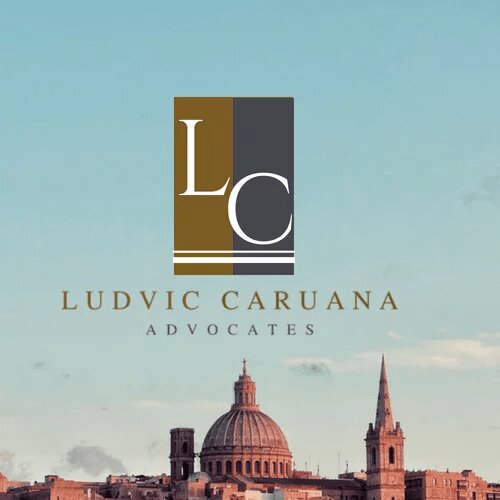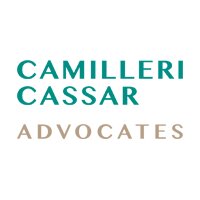Best Collaborative Law Lawyers in Valletta
Share your needs with us, get contacted by law firms.
Free. Takes 2 min.
Free Guide to Hiring a Family Lawyer
List of the best lawyers in Valletta, Malta
About Collaborative Law in Valletta, Malta
Collaborative Law, also known as collaborative practice or collaborative divorce, is an alternative dispute resolution process that focuses on amicable negotiations and settlements, typically in family law cases such as divorce, child custody, and property division. In Valletta, Malta, this method has been increasingly embraced as a way to resolve conflicts without the adversarial atmosphere of a courtroom. Collaboratively trained lawyers work alongside clients to reach mutually beneficial agreements with the help of other professionals such as financial advisors and mental health experts.
Why You May Need a Lawyer
There are several situations where individuals in Valletta, Malta may require the assistance of a collaborative lawyer:
- Divorce Proceedings: To settle the terms of a divorce without resorting to litigation.
- Child Custody Arrangements: To agree on custody terms and ensure the best interests of the child are prioritized.
- Property Division: To fair split marital property and assets in a way that both parties find acceptable.
- Spousal Support: To negotiate reasonable and fair spousal maintenance terms.
- Pre-nuptial and Post-nuptial Agreements: To create agreements that protect the interests of both parties in a marriage.
Having a collaborative lawyer ensures that the process is handled professionally, amicably, and in compliance with local regulations.
Local Laws Overview
Collaborative Law in Valletta operates within the framework of Maltese family law, which emphasizes amicable resolutions in line with European legal standards. Some key aspects include:
- Matrimonial Laws: These laws cover all aspects of marriage, including divorce, separation, alimony, and division of property.
- Child Welfare: Maltese law prioritizes the welfare of the child in custody disputes, ensuring that their best interests are considered.
- Enforcement of Agreements: Agreements reached through collaborative law are legally binding once sanctioned by the court.
- Confidentiality: Discussions and documents shared during the collaborative process are confidential and can't be used in court if the collaborative process fails and litigation ensues.
Frequently Asked Questions
What is Collaborative Law?
Collaborative Law is a structured process that aims to resolve legal disputes amicably through negotiation and without resorting to litigation.
How does Collaborative Law differ from traditional litigation?
Unlike traditional litigation, Collaborative Law emphasizes cooperation and aims for mutually beneficial outcomes rather than adversarial win-lose scenarios.
Is Collaborative Law applicable in every situation?
While highly effective in family law matters, Collaborative Law may not be suitable for every situation, especially where there is a significant imbalance of power or allegations of abuse.
What happens if collaborative negotiations fail?
If the collaborative process fails, parties need to find new lawyers for litigation since the collaborative lawyers must withdraw from the case.
Do I need to go to court if I choose Collaborative Law?
No, one of the main advantages of Collaborative Law is that it aims to resolve issues without court intervention. However, final agreements may need court approval to become legally binding.
How long does the collaborative process take?
The duration varies depending on the complexity of the issues and the willingness of both parties to reach an agreement, but it typically takes less time than traditional litigation.
Can we involve other professionals in the collaborative process?
Yes, professionals such as financial advisors, mental health experts, and child specialists can be involved in the process to provide their expertise and help resolve specific issues.
Is Collaborative Law cost-effective?
While there are costs involved, Collaborative Law is generally more cost-effective than traditional litigation due to fewer court appearances and faster resolutions.
Are agreements reached through Collaborative Law legally binding?
Yes, once both parties agree, the final document can be sanctioned by the court, making it legally binding.
How do I find a collaborative lawyer in Valletta?
Look for lawyers who have specialized training in Collaborative Law. Local bar associations or legal directories can provide referrals.
Additional Resources
For more information and assistance regarding Collaborative Law in Valletta, consider reaching out to the following resources:
- Malta Mediation Centre: Offers mediation and collaboration services.
- Maltese Family Law Practitioners Association: Provides directories of lawyers and resources.
- Ministry for Justice: Offers guidelines on legal processes in family law.
- Local Legal Aid Offices: Assistance for those who qualify financially.
Next Steps
If you need legal assistance in Collaborative Law, consider taking the following steps:
- Consult a Collaborative Law Lawyer: Seek out a lawyer who specializes in collaborative processes to understand your options.
- Prepare Documentation: Gather any relevant documents such as financial records, property deeds, and prior legal agreements.
- Initial Consultation: Schedule an initial consultation to discuss your situation and explore if Collaborative Law is the right fit for you.
- Engage in the Process: Commit to collaborative negotiations to try and reach an amicable resolution.
- Final Agreement: Work towards drafting a final agreement that will be sanctioned by the court to become legally binding.
By taking these steps, you can navigate the complexities of your legal needs with the aim of achieving a fair and positive outcome for all parties involved.
Lawzana helps you find the best lawyers and law firms in Valletta through a curated and pre-screened list of qualified legal professionals. Our platform offers rankings and detailed profiles of attorneys and law firms, allowing you to compare based on practice areas, including Collaborative Law, experience, and client feedback.
Each profile includes a description of the firm's areas of practice, client reviews, team members and partners, year of establishment, spoken languages, office locations, contact information, social media presence, and any published articles or resources. Most firms on our platform speak English and are experienced in both local and international legal matters.
Get a quote from top-rated law firms in Valletta, Malta — quickly, securely, and without unnecessary hassle.
Disclaimer:
The information provided on this page is for general informational purposes only and does not constitute legal advice. While we strive to ensure the accuracy and relevance of the content, legal information may change over time, and interpretations of the law can vary. You should always consult with a qualified legal professional for advice specific to your situation.
We disclaim all liability for actions taken or not taken based on the content of this page. If you believe any information is incorrect or outdated, please contact us, and we will review and update it where appropriate.














